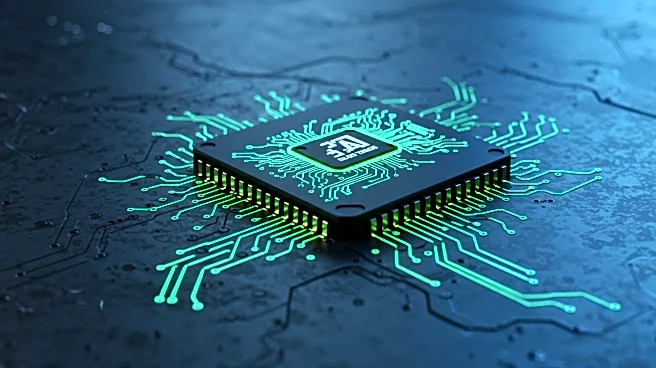What's Happening?
NVIDIA has announced updates to its Project G-Assist and NVIDIA App, aimed at improving performance and expanding support for RTX GPUs. Project G-Assist now reduces memory usage by 40%, making it more responsive and efficient. It is available on all RTX GPUs with 6GB or more VRAM, broadening its accessibility. The NVIDIA App introduces global DLSS overrides, allowing users to enable DLSS across multiple titles. It also adds Smooth Motion support for RTX 40 GPUs, enhancing frame generation. The updates include legacy 3D settings for classic games, providing users with more control over their gaming experience.
Why It's Important?
These updates are significant for gamers and developers, as they enhance the performance and capabilities of NVIDIA's RTX GPUs. By reducing memory usage and expanding support, NVIDIA is making advanced gaming features more accessible to a wider audience. The global DLSS overrides and Smooth Motion support improve visual fidelity and gameplay experience, addressing common challenges in game development. These enhancements can lead to more immersive and visually appealing games, benefiting both players and creators. The updates also reflect NVIDIA's commitment to innovation and user satisfaction in the competitive gaming industry.
What's Next?
As NVIDIA rolls out these updates, users can expect improved gaming performance and new features to explore. The expanded support for RTX GPUs may lead to increased adoption of NVIDIA's technology in gaming and other applications. Developers may leverage the new capabilities to create more sophisticated and visually stunning games. NVIDIA's focus on user-friendly features and legacy settings suggests ongoing efforts to cater to diverse gaming preferences and needs. Future updates may continue to refine and expand the functionality of NVIDIA's products, maintaining its position as a leader in the gaming technology market.
Beyond the Headlines
The updates highlight the importance of efficient resource management in technology development, as reducing memory usage can significantly enhance performance. NVIDIA's approach to expanding support and adding legacy settings reflects a broader trend of inclusivity and adaptability in tech innovation. These developments may influence other companies to prioritize user experience and accessibility in their products, fostering a more dynamic and competitive industry.









